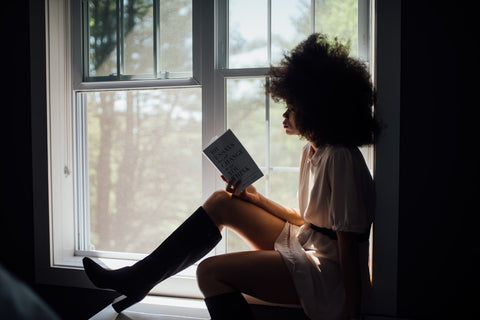Black History Is Happening Every Month
My son was very pleased with himself when I collected him from school one day. He is 6 and he was the only child in his class to correctly identify Mary Seacole from a picture on the board that same day. It is Black History Month. A few days later he tells me all about Rosa Parks. Last week he told me about Harriet Tubman. My daughter is six years older than her brother and she too recited Tubman, Parks and Seacole to me each October from that age. Whilst these figures hold huge historical significance, it bothers me that not very much effort has gone into developing children’s knowledge and understanding of Black History beyond the centring of black pain and enslavement. Presenting a historical atrocity agnostic to the situation that bred it also worries me since we teach our children about enslavement without the context of colonialism.
Black History Month in schools should not only focus on black pain, but black joy as well. It is important for children to gain a broader perspective of black history that takes into account the myriad contributions that black culture has had on shaping our society. As well as learning about Rosa Parks, I would love to have my children come home telling me they learned of individuals such as Katherine Johnson, Dorothy Vaughan and Mary Jackson; the black women working for NASA who played an instrumental role in the successful launch of American astronauts into space. I want them to learn of black people who have made history for outstanding achievement, like Dianne Abbott, first black woman to be elected to parliament.

I spoke with Jasmine Preko, a student from London who created an online magazine ‘A Matter of Change’ in response to racial and social injustice. She echoes my feelings on the way we deliver black history in schools explaining how this influenced much of what she did with her own magazine: “I felt that in schools and from talking to other people about their experiences, black history focuses on people’s enslavement; people being captured and their struggle rather than their life before and their life after. How there was still culture before people were enslaved and how they have been able to rise and showcase their talent and culture even after enslavement.” With the aim to educate and provoke discussion, Jasmine’s magazine not only highlights the Civil Rights Movement but also how black culture has influenced music, dance styles and art forms, referencing post-modern black female artists such as Emma Amos and Deborah Willis. An impressive feat considering she was only 17 when she created it.
As a writer and a woman of colour who not only studied English Literature at university but has also taught English for a number of years, I know all too well about the lack of diversity within the curriculum. The Guardian reported in September that the largest exam board in the country doesn’t feature a single book by a black author. Only two texts feature non-white authors: Meera Syal and Kazuo Ishiguro. The largest exam board is AQA with 80% of candidates sitting their exam, meaning that “Pupils could complete their GCSEs and leave secondary school in England without studying a novel or play by a non-white author.”
Publisher Penguin has just launched an initiative ‘Lit in Colour’ in partnership with The Runnymede Trust with the aim of addressing this deficit, stating that, “Across the three major exam boards in England, fewer than one in seven novels and plays studied for GCSE English Literature are by an author of colour…it is about helping students to develop a sense of belonging, identity and social cohesion.” The campaign endeavours to support schools on delivering a more inclusive English Literature curriculum whilst increasing access to books by authors of colour and from minority ethnic backgrounds.

Initiatives such as this gives me hope that students in the future will be exposed to more diversity throughout the year, and that this in turn will help to move Black History Month away from falling into the realms of tokenism. Schools have a responsibility to deliver an inclusive curriculum reflective of society as a whole. I wish I could have recognised myself in the texts I studied at school, to have felt that work produced by someone like me could be worthy of study, of close-reading and literary analysis. As Bernadine Evaristo, author of Girl, Woman, Other, who made history as the first black woman to be awarded the Booker Prize, says, “a wider range of voices, cultures, perspectives can only enrich what already exists and will contribute to a more inclusive education system and a more egalitarian society.”
Written by Yasmina Floyer


Leave a comment